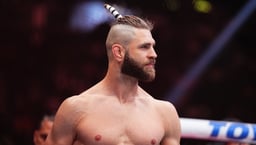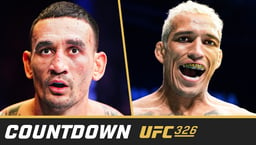
Issue 079
September 2011
Manager, translator and confidant to MMA legends like ‘Shogun’ Rua, Murilo Rua and Demian Maia, Eduardo Alonso’s journey to the tip of the sport was nearly 20 years in the making
One day after Mauricio ‘Shogun’ Rua lost his UFC light heavyweight title to the surging Jon Jones in a one-sided manhandling at UFC 128 in March, Eduardo Alonso cried. Although on paper he is purely the former belt holder’s manager and translator, the many years he has spent with the Rua brothers – Murilo ‘Ninja’ as well as Mauricio – means Alonso is more family member than colleague. “We accepted the fight looking at it in a positive way, confident we’d have the final say with the win,” explains Alonso. “We didn’t work hard enough and properly enough to make it happen, as the result shows. Congrats to Jones, he deserved the win and was a better fighter. It was a very tough to take, but at the same time it was quickly in the past. I remember the only day I cried was the day after that fight, and I didn’t cry because of the loss itself, but because of the silly mistakes that were made by all of us, and how we allowed ourselves to be in that position.”
Shogun is now scheduled to make his comeback at UFC 134 in Rio against another former UFC light heavyweight champion, Forrest Griffin. Eduardo believes the return of the world’s premier organization to Brazil after a 13-year hiatus will help MMA explode as one of the country’s preferred sports. “Brazil will experience UFC fever when the show happens in Rio. Bigger sponsors are coming locally here in Brazil, the media is giving more attention and a snowball effect started months ago. I think I’ll have to change my cell phone number now that UFC 134 is close because of all the ticket requests!” he laughs.
The network of contacts that will pester for ringside seats is the same one he’s built up during nearly a 20-year love affair with MMA. Now 32, Alonso (who in his time has been a promoter, judge and referee prior to his current position) became hooked on mixed martial arts when the UFC debuted in 1993, eclipsing an early love of soccer. Eduardo remembers: “When SporTV (Brazil’s leading sports cable channel) started showing the first UFCs around 1994 I really started to get addicted to it. I started to spend more time in the gyms, eventually participated in some classes, bought NHB (no holds barred) magazines and tapes and also started to seek NHB content online. It was a very low-recognized sport, nothing compared to all the media attention nowadays.”
Born in Rio de Janeiro but raised in Sao Paulo, Alonso jumped from fan to journalist around 1998. Although it seemed an innocuous switch it was ultimately the genesis for the rest of his career. After some time, the interview that eventually made his name was with a then-unknown Wanderlei Silva. Alonso recalls: “I had no connections with Chute Boxe then, but I found the phone number in the Yellow Pages of a gym where Silva was teaching Muay Thai. We ended up recording like four hours of tape, and the interview went up in English and Portuguese on two of the most important websites back in those days. It was a hit! No one had talked to him and he had just beaten up Dan Henderson. People loved the interview and I loved doing it even more, so I decided to go after Vitor Belfort, Mario Sperry and Royce Gracie.”
Still a teenager, Eduardo became a recognized journalist when he was hired by the then-prominent Full Contact Fighter magazine and website. For years he interviewed some of the sport’s greatest names from Carlson Gracie to Anderson Silva. As the now-famous Chute Boxe developed into a powerhouse gym and Eduardo’s friendship with Wanderei blossomed, lengthy stays at the Academy introduced Alonso to the Rua brothers; Murilo, already a well-known talent, and younger sibling Mauricio, still struggling to establish himself. “I met Ninja through Wanderlei and Shogun through Ninja,” reveals Eduardo. “We developed a very close friendship and started to travel through Brazil for fun and around the world doing seminars, classes and stuff like that. I was handling the business stuff for them, eventually getting some sponsors and, most important, becoming a trusted guy, like a member of the family. I really owe a lot to them for being the first fighters to really trust my work and abilities and giving me the chance to show what I could do.”
While he had become an intrinsic member of the Rua group, Alonso still sought any opportunity to become a full-time manager. “I didn’t think someone would give me that chance. I was about to quit MMA until late in 2007 when Ninja and Shogun decided to start their own team and asked if I would become their manager, as I was the guy they trusted.” He adds: “I can’t express in words how grateful I am and will always be.”
Submission wizard Demian Maia, who is now another of Alonso’s charges along with 12 upcoming athletes from the Rua brothers’ Universidade de Luta (Fighting University), praises Alonso’s work, saying he is “much more than a normal manager.”
Eduardo closes: “People call themselves ‘managers’ too easily, but most of them are only agents, they just seek and negotiate deals with promotions and sponsors then collect their cut and that’s all. To really manage a fighter’s career goes much further. You need to understand the business in a complete way, be passionate about it and pretty much give up your personal life. Then you have to really go on and handle, manage, plan and coordinate pretty much all aspects of the guy’s professional life, which ends up in some ways also advancing a bit into some personal life aspects. You can’t forget we are talking about human beings!”
...









